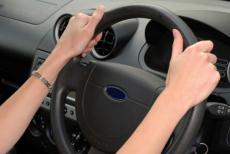 This is the brave new world of car insurance – let big brother monitor your skills behind the wheel and see if you can drive down your premiums.
This is the brave new world of car insurance – let big brother monitor your skills behind the wheel and see if you can drive down your premiums.
The world of car insurance is changing. The industry is on the brink of a quiet revolution that could see motorists no longer judged on what they're expected to do or what their peers do, but what they actually do.
Welcome to telematics.
Telematics insurance, or black box insurance, uses a small electronic device fitted to the car to monitor your driving habits, including speed, distance, breaking and so on. Using this data, insurers create a profile of how 'good' a driver behind the wheel is and then charge the premium accordingly: the better driver you are, the lower your premiums will be.
It's a simple idea that's just taking off, so much so that citroën recently launched the c1 connexion, the first car to come with a black box as standard.
And in February this year, price comparison website Gocompare launched a telematics comparison table. The site lists eight providers, including carrot car Insurance, Insurethebox and aa drivesafe, but there are many more out there.
And, according to confused.com, motorists could save up to 20% on their annual policy, or as much as £473 compared with regular car insurance.
Different policies work in different ways – some penalise poor drivers and others offer bonuses for good driving.
Some insurers offer deals based on distance – for example, a 10,000-mile policy might charge you if you drove further. other policies implement a strict curfew, so drive outside of set hours and you will be charged. for example, with iKube's curfew telematics policy, motorists must pay a £100 penalty every time they drive during the 'red hours' of 11pm to 5am.
Compare car insurance quotes from more than 130 insurers
"The main market is young drivers as they have not proved themselves to be safe drivers, have little no-claims discount and pay very high premiums," says Ian crowder, spokesperson for the aa.
"They have the scope to bring premiums down rapidly, but anyone with a high premium can benefit through good driving."
But while telematics is fast becoming the default option for young drivers, Pete harrison, insurance expert at moneysupermarket.com, says: "The challenge facing the telematics industry is to encourage safer, older drivers of its benefits. It can also be used for those in high-risk occupations as they often have higher premiums."
That said, riskier driving will not go unpunished. If you drive long distances late at night, telematics could raise your premiums – even during the contract.
The cost of the box – typically around £200, including installation – is often included in the premium, though some providers might charge an upfront fee. In theory, this can be earned back through safe driving and cheaper premiums, but harrison says the benefits go beyond that.
"The main draw is obviously cheaper premiums but I think parents are using it as an opportunity to monitor their son or daughter's driving."
But for all the benefits of having your driving monitored, there are downsides. Some find the concept of telematics too intrusive. Joanne Garcia, head of emerging products at confused.com, says 'big brother' privacy concerns can put people off.
She adds that many drivers doubt they're good enough for telematics. "They're not sure they will save money, hence the popularity of free 'try before you buy' smartphone apps, such as MotorMate, which give you a taste of your driving before committing to a policy.
"There is also the risk your insurance premium will go up mid-term if you're a bad driver. And the fact there is little standardisation across the industry, with different policies and technology, is confusing too."
Telematics vs standard policies
Top three telematics insurers for a 22-year-old student living with parents in cardiff driving a 2008, 1-litre citroën c1 vibe – on a 10,000-miles policy compared with standard policies
*Initial premiums, which may be reduced further by good driving.
On balance, the pros of telematics are hard to ignore. "It will make people more aware of their driving, and many providers offer tips on how to improve," says Garcia.
Ed Rochford, product director at insurer Carrot – which prides itself on offering a 'carrot' rather than 'stick' approach to young drivers, with cash rewards for good driving – says telematics offers drivers certainty about how much they will pay and why. He feels this is important at a time when confidence in financial services providers is lacking. Indeed, Carrot's own research revealed that young people see insurance companies in the same light as the banks and that there is no trust.
Other advantages include tracking data that can help the police locate your car if it's stolen, or provide detailed information if you're involved in an accident. Such accurate vehicle data is also of use to the insurer, which can use it to clamp down on fraud.
With many of these products aimed at young people, is there a time drivers should move away from telematics? Rochford says not. "Safe-driving discounts apply on top of no-claims discounts, so safe drivers could continue to benefit. The better your driving score, the more likely you are to save money."
By providing a scientific approach to insurance for problem groups, telematics is developing a level of engagement between insurer and driver rarely seen before. Mutually beneficial for driver and provider, it has the potential to slash premium costs for millions of drivers and also make our roads safer.